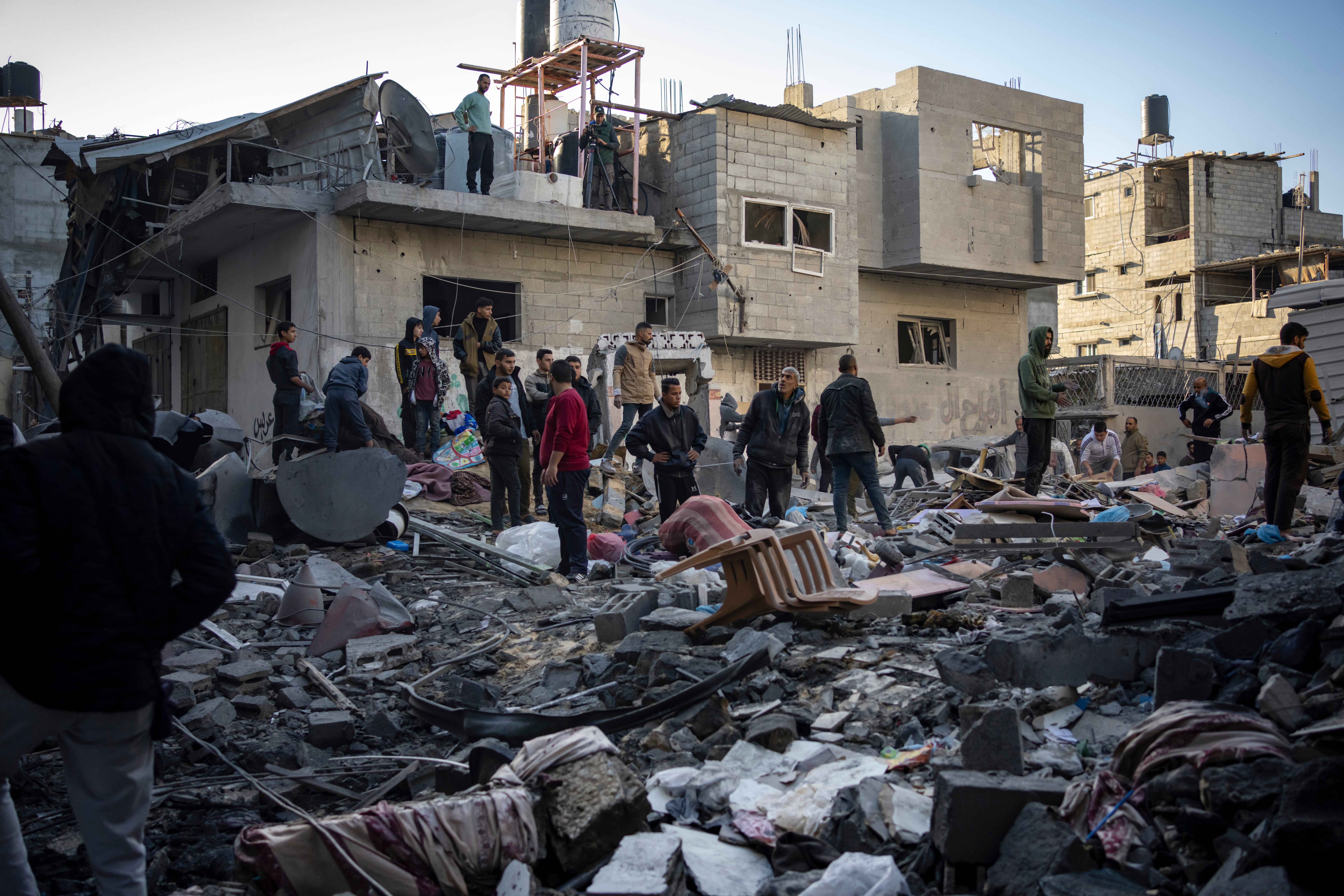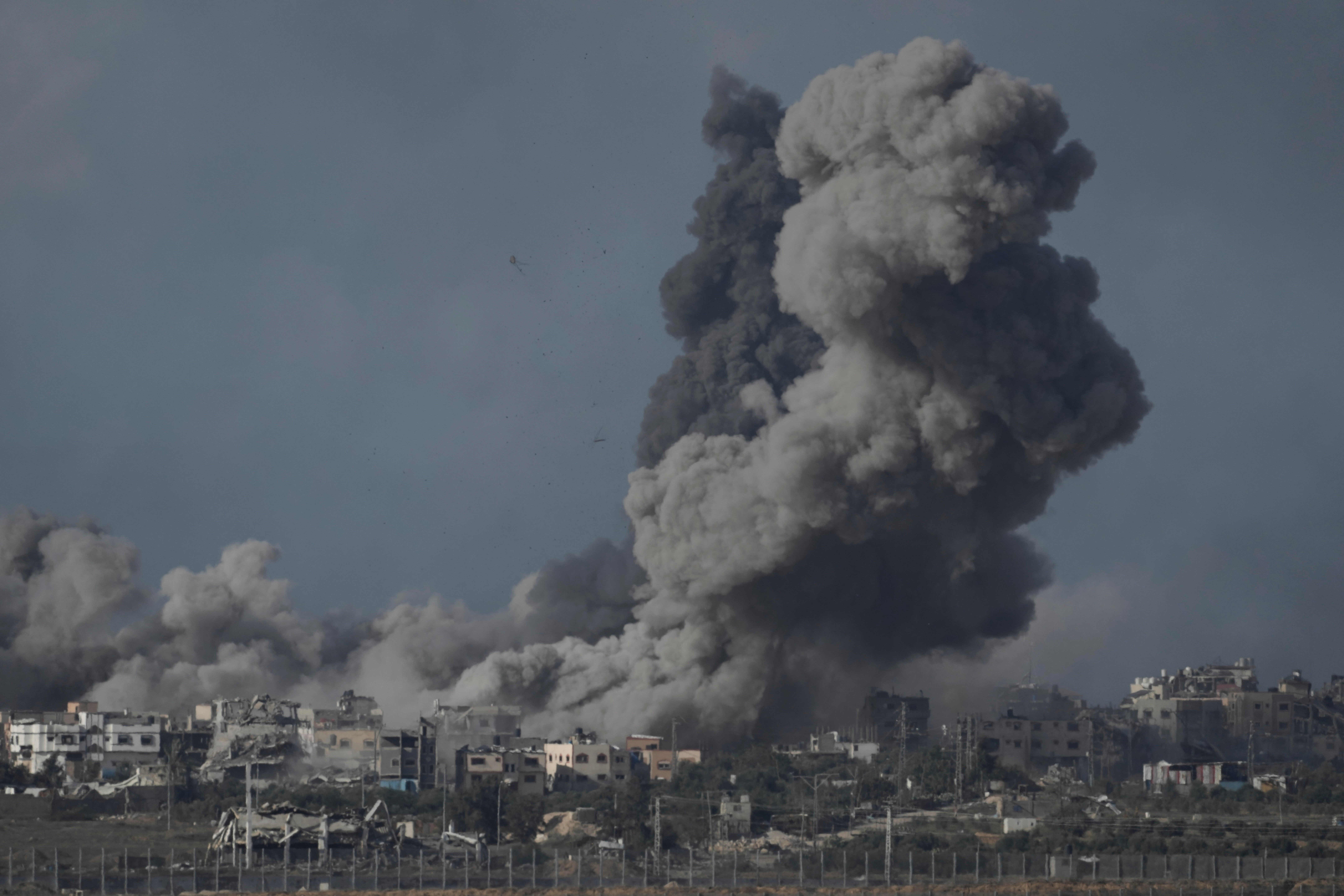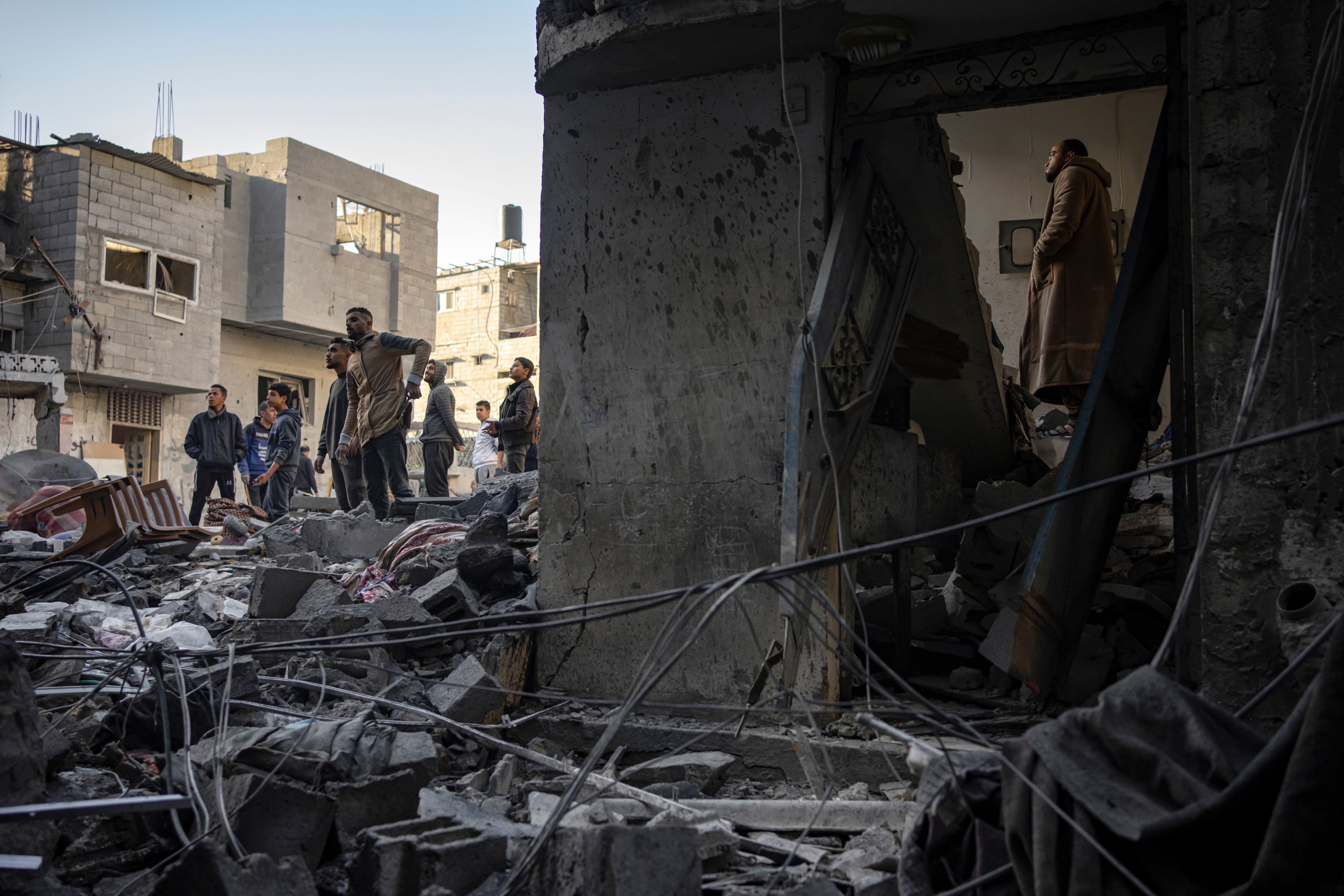Israeli study finds civilians make up 61% of Gaza deaths from airstrikes
Analysis released as heavy fighting continues to rage throughout Gaza Strip

Your support helps us to tell the story
From reproductive rights to climate change to Big Tech, The Independent is on the ground when the story is developing. Whether it's investigating the financials of Elon Musk's pro-Trump PAC or producing our latest documentary, 'The A Word', which shines a light on the American women fighting for reproductive rights, we know how important it is to parse out the facts from the messaging.
At such a critical moment in US history, we need reporters on the ground. Your donation allows us to keep sending journalists to speak to both sides of the story.
The Independent is trusted by Americans across the entire political spectrum. And unlike many other quality news outlets, we choose not to lock Americans out of our reporting and analysis with paywalls. We believe quality journalism should be available to everyone, paid for by those who can afford it.
Your support makes all the difference.Gazan civilians make up a staggering 61 per cent of deaths from Israeli airstrikes, an Israeli study has found.
The analysis, conducted by Yagil Levy, a sociology professor at the Open University of Israel and published by Israeli newspaper Haaretz, found that in the first three weeks of Operation Swords of Iron, the total death toll stood at 6,747 - 4,594 of whom were civilians.
It marks a roughly 20 per cent increase in civilian deaths when compared to three other Israeli bombing campaigns that took place in 2012, 2021 and 2022. In all of those campaigns the civilian death toll stood at around 40 per cent. Israel’s ‘Shield and Arrow’ campaign, which took place in May 2023, registered a slightly lower figure for civilian deaths, at 33 per cent.
The analysis was released as heavy fighting raged throughout the Gaza Strip on Sunday. Those on the ground say Israeli forces are coming up against heavy armed resistance - even in the north of the strip, where troops have been conducting operations for over six weeks.

In the Gaza City neighborhood of Shijaiyah, as well as the Jabaliya refugee camp, gun battles continued into Sunday, according to residents. The refugee camp is a dense urban area of housing, making operations particularly difficult for the invading force.
In Khan Younis, southern Gaza, the Israel Defence Forces warned Gazans to evacuate the city centre on Saturday. Residents of the city said they heard constant gunfire and explosions through the night into Sunday, as airstrikes pounded the surrounding area.
The continued Israeli operations came as IDF Chief of Staff Lt. Gen. Herzi Halevi told a group of soldiers that Hamas was falling apart, saying that now was the moment “to press harder.”
Israel’s operations pushed forward even as its close ally the United States was heavily criticized for vetoing a UN Security Council resolution calling for a ceasefire on Friday night. The US and UK were the only countries not to back the resolution, with Britain abstaining.
Following the vote, Israeli prime minister Benjamin Netanyahu dismissed calls for a ceasefire, reportedly telling his cabinet that he had told the leaders of France, Germany and other countries: “You cannot on the one hand support the elimination of Hamas and on other pressure us to end the war, which would prevent the elimination of Hamas”.
With the UN vote vetoed, the broad range of groups pushing for an end to hostilities faced a setback.

At an emergency board meeting of the World Health Organization on Sunday, director-general Dr Tedros Adhanom Ghebreyesus said the impact of the conflict on Gaza’s healthcare sector has been “catastrophic”. In Gaza, there is just one shower for every 750 people and one toilet for every 150, he said.
“As more and more people move to a smaller and smaller area, overcrowding, combined with the lack of adequate food, water, shelter and sanitation, are creating the ideal conditions for disease to spread,” he said.
WHO emergency sessions such as this are rare - and have previously occurred during global health crises including during the Covid-19 pandemic and during West Africa’s Ebola epidemic in 2015.
Around the world, the effects of the Israel-Hamas conflict continued to play out.
On Saturday, Iran-backed Houthi rebels said they would target any ship headed towards Israel. Later that evening, a French warship in the Red Sea shot down two drones that had approached it from Yemen, according to the French Defence Ministry.
In Cyprus, two Iranians have been detained for questioning over the suspected planning of attacks on Israeli citizens living in the country, the Kathimerini Cyprus newspaper reported on Sunday. The two are thought to have been attempting to gather intelligence on possible Israeli targets, according to the newspaper.
Elsewhere, the Egyptian elections began on Sunday, with incumbent President Abdel Fattah el-Sissi all but certain to win. Domestically, the elections have been largely eclipsed by the Israel-Hamas war, with Egyptians paying strong attention to the ongoing hostilities in Gaza.
The elections take place as the head of the United Nations agency for Palestinian refugees has accused Israel of laying the groundwork for the mass expulsion of Gazans across the territory’s border into Egypt.
Join our commenting forum
Join thought-provoking conversations, follow other Independent readers and see their replies
Comments